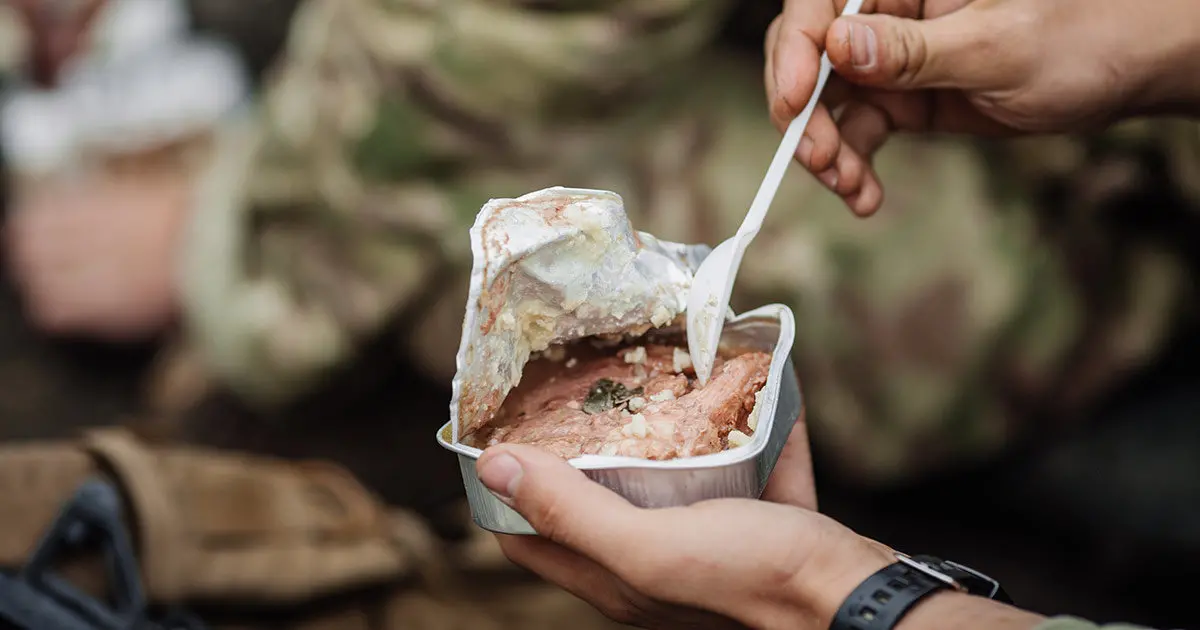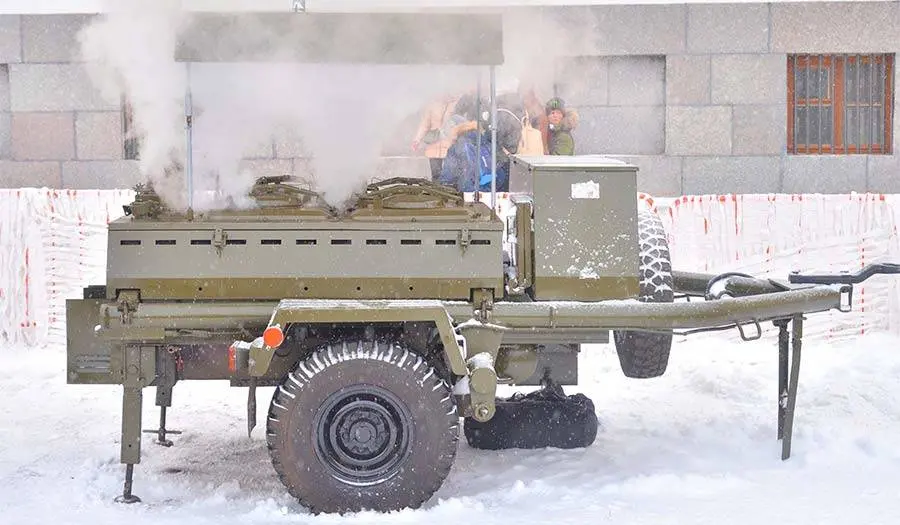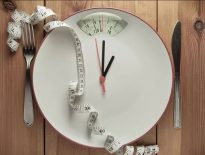When clients started asking me about the military diet plan, I have to admit, I wasn’t sure about the details.
Well, turns out it’s just an old concept dressed in new clothing. I find it entertaining that there are still new labels attached to old practices. Entertained, but not surprised.
So what did I learn about the military diet during my search?
First, I feel obligated to report there’s an awful lot of copying and pasting amongst many of the blogs. And just a heads up, this is not a “copy and paste” website.
After over three decades of doing this, I’m not interested in parroting back someone else’s opinion. Especially if they lack a formal education on the subject.
In other words, here’s my evaluation and opinion of the military diet based on education, experience, and peer-reviewed studies.
Glynn’s Guide:
Takeaways That Won’t Fail You
- The military diet is a calorie restricting diet. It uses a cool name designed to gather email addresses for a free download. Super valuable information for the creator.
- There’s no relevance or connection to the military.
- It should be called calorie cycling or calorie restriction.
- The weight you lose will only contain a small percentage of fat.
- This particular meal plan is not nutritionally sound for an extended period.
- Simply cutting your sugars out is a better alternative. And realistic.
Table of Contents
Click to Jump to a Section
What is the military diet?
What are the claims?
Is there a relevance to the military?
The military diet 3 day meal schedule
How does it work?
Is the military diet nutritionally sound?
Is the diet sustainable?
What should it be called instead of the military diet?
What should you expect?
Why am I against this diet?
What is a better alternative?
Conclusion
Frequently Asked Questions
What is the 3 Day Military Diet?
I continue to see the same military diet grocery list. And there’s nothing magical about the food selections. This meal plan just cycles calories. It is a low-calorie diet. Again, the same animal, different costume.
With claims like, lose 10 pounds in 10 days, the military diet must be different or high tech, right? Not so.
This, no doubt also directs more people toward a specific website. And we’re all well aware of the value of collecting consumer data.
Let’s face it. A name like “the military diet” instills a sense of “badass” or refined and professional. Marketing genius if you ask me. Don’t fall for it!
What are the Claims?
You can lose 10 pounds in a week is the claim or promise of the military diet meal plan. I never like to specify the exact amount of weight anyone will lose with any plan. How can something so subjective be quantified? What is the value of losing 10 pounds in a week if most of it ends up being water and muscle?
Metabolically speaking, we all vary in how we use calories, gain weight, and lose weight. And there are an awful lot of variables to consider.
Why the 10-pound weight loss claim? Marketing. It is just the right number to get your attention. Not too much and not too little. Again, nothing magical about the food selections. In fact, some are poor choices.
I suppose it’s at least easy to do a military diet shopping list. And the foods appeal to the general population. But again, nothing extraordinary about the foods specifically for the military diet.
I can’t find any specific information on the author of this fad diet either. Guessing there’s no education behind the plan. Shocking!
You certainly wouldn’t trust my taxes to someone without a formal background in accounting. Why make that exception to your health?
What is the Relevance to the Military?
There is no relevance or connection to any branch of the military. This is not an Army diet, Marine diet, Air Force diet, Navy diet, or boot camp diet plan. Period.
Again, I believe it’s strictly for marketing. Look at basic training for any branch of the military. They all eat three meals a day in the chow hall. They’re given an allotted amount of time to consume all the calories they can.
Military boot camp participants are expending far more calories than the average person. Without adequate nutrition (read a lot of calories), they will lose weight. But this is the expected and encouraged outcome.
And just a heads up. They’re not restricted to any calories. They can eat as much as they like within a specific timeframe.
There is no weird calorie cycling.
Chow hall rules, of course, change after basic training. But again, they’re doing a lot of physical activity and need excess calories.
The 3 Day Military Diet Meal Plan Schedule
Below are the basic guidelines for the 3-day boot camp diet plan. Each day is fewer calories than the one before.
Day 1
Meal 1:
- A slice of toast with 2 tablespoons of peanut butter.
- Half a grapefruit.
- A cup of coffee or tea (optional).
Meal 2:
- A slice of toast.
- Half a cup of tuna.
- A cup of coffee or tea (optional).
Meal 3
- A 3-oz (85 grams) serving of meat with a cup of green beans.
- One small apple.
- Half a banana.
- One cup vanilla ice cream.
Day 2
Again, less calories than day 1.
Meal 1:
- A slice of toast.
- One hard-boiled egg.
- Half a banana.
- A cup of coffee or tea (optional).
Meal 2:
- One hard-boiled egg.
- A cup of cottage cheese.
- 5 saltine crackers.
- A cup of coffee or tea (optional).
Meal 3:
- Two hot dogs, with no bun.
- Have a half a cup of carrots and half a cup of broccoli.
- Half a banana.
- A half a cup of vanilla ice cream.
Day 3
The lowest calorie day.
Meal 1:
- A 1-ounce slice of cheddar cheese.
- 5 saltine crackers.
- A small apple.
- One cup of coffee or tea (optional).
Meal 2:
- A slice of toast.
- One egg, cooked any way you like.
- A cup of coffee or tea (optional).
Meal 3:
- A cup of tuna.
- Half a banana.
- 1 cup of vanilla ice cream.
Each of the 4 days following the low calorie 3 days should be around 1500 calories. Still, less than the average person needs a day. So, we should just call this calorie restriction.
How Does the Military Diet Work?
This is the fun part! It was stated that:
“The cellular and molecular effects of intermittent fasting and calorie restriction on the cardiovascular system and the brain are similar to those of regular physical exercise, suggesting shared mechanisms.”
I find this fascinating!
So, before I poo-poo all over the military diet meal plan. I have to admit, I’m finding some very interesting peer-reviewed research.
But let’s not call it “the military diet”. Instead let’s call it calorie restriction without undernourishment. This would, of course, apply to a nutritionally sound, low-calorie diet.
But, Wang stated
The intermittent very low-calorie diet (VLCD) improved weight loss and glycemic control, but these effects were quite modest and do not appear to justify the clinical use of an intermittent VLCD. Moreover, lengthening treatment to a full year did not prevent relapse.”
Translation? A moderately low-calorie diet over an extended time is great for weight maintenance and health.
So that is how the military diet works.
The most important topic that seems to be revisited other than weight loss is lifespan. A lot of peer-reviewed research correlates intermittent fasting or calorie restriction with longevity.
If you sustain a restricted calorie meal plan, you may still achieve a ketogenic state. You can read more about ketosis in my article How to Get into Ketosis Fast and Staying There [Safely].
I’m all for a ketogenic state if you’re not consuming sugars or starches. I say this to try to keep your blood chemistry healthy.
Is the Military Diet Nutritionally Sound?
Not really.
But, any nutritional deficiency is negated by the “military diet 4 days off”.
It’s definitely deficient in calories.
Yes, a loss of glycogen stores, excess water, some muscle tissue, and some fat will result in a quick weight loss.
But it’s hardly only fat that you’ll lose. This is not a positive attribute!
I can say without a reasonable doubt that I’ve never ever experienced one of these fad diets to work long-term to keeping the weight off. Not in any of my three decades of experience.
Is the 3 Day Military Diet Sustainable?
No.
That said, I believe the point is not sustainability, but rather rapid weight loss.
Still, I would not indefinitely repeat the military diet meal plan.
What Should it be Called Instead of the Military Diet?
Call it what it is. Calorie restriction or calorie cycling. Which, all in all, is calorie deprivation.
Yes, you will lose weight. Is it the most advantageous route to take long-term? Not at all.
What Should You Expect from the Military Diet?
“Hangry” is the first word that comes to mind.
Yes, you will lose weight on the scale. But it’s not from the parts of your body you want to lose weight from.
Again, the weight loss comes from the loss of:
- Water weight
- Muscle and liver glycogen
- Muscle tissue
- Fat
Why am I Against This Diet?
Realistically, this is difficult to sustain. And once you stop, you’ll typically regain some, most, or all of the weight lost.
I’ve watched this time and again.
I’ve been around the block. And don’t need to cite all the research about the stopping of fad diets and rapid weight gain. You already know about that reality. It seems generally understood by society, but just keeps repeating itself. Why?
Let’s look at some of the simple science.
During calorie deprivation, your thyroid hormones (T3 and T4) downregulate. Overall, this makes you less efficient at utilizing the calories you’ve consumed. In other words, resume normal food intake and store more fat than normal.
Yes, your sensitivity to insulin increases, but this is short lived. Especially once you return to your normal dietary patterns.
What is a Better Alternative Meal Plan?
In all my years, nothing has worked as well as a low carbohydrate, no sugar meal plan. It can be made with no deficiencies and sustainable long term. Period! And it’s realistic.
If you’re interested in an increased lifespan, consideration of an intermittent fasting diet is within reason.
But, if all you do for one week is completely remove your sugars, you’ll lose weight without any added effort. And it’s the path to a much more sustainable meal plan. For life!
The Conclusion on the 3 Day Military Diet Meal Plan
The military diet can be used to decrease the number on the scale short term. But you’re setting yourself up for failure in the long term.
This is not a sustainable plan, period! This diet lacks a sound, nutritionally adequate meal plan.
It pains me to say this, but I suppose if you want to squeeze into a particular article of clothing for an event in a week. It will help.
With all of this said, if you’ can sustain a lower calorie diet. There’s a lot of data to suggest that you’ll increase your lifespan. This is true whether you’re intermittent fasting or just restricting calories.
Intermittent fasting is also a good alternative if it fits into your lifestyle. It’s not for everybody but has some real advantages. You can read more about it in my article, Intermittent Fasting 101: All You Need To Know [The Definitive Guide].
Military Diet Frequently Asked Questions
Is military diet low carb?
No. It’s low calorie.
Is military diet bad for you?
It’s not a sustainable, nutritionally sound plan, but it will not hurt you for a short duration.
Can you do the military diet for a month?
Yes. You will lose weight in the form of water, glycogen, muscle, and fat. But, the results will slow after the first two weeks. It’s not nutritionally sound enough for a long-term application.
Where did military diet come from?
It was developed for marketing purposes. There’s no science behind the plan.
Military diet to jumpstart weight loss?
Yes, this would work. But a better alternative is to cut sugars first.
Questions for You
What experience do you have with intermittent calorie restriction?
References on Military Diet Plan and Calorie Restriction
J E Donnelly, N.P. Pronk, D J Jacobsen, S J Pronk, J M Jakicic; Effects of a very-low-calorie diet and physical-training regimens on body composition and resting metabolic rate in obese females, The American Journal of Clinical Nutrition, Volume 54, Issue 1, 1 July 1991, Pages 56–61,
Jana Koubova and Leonard Guarente, How does calorie restriction work? Genes & Dev. 2003. 17: 313-321.
Nils Halberg, Morten Henriksen, Nathalie Söderhamn, Bente Stallknecht, Thorkil Ploug, Peter Schjerling, and Flemming Dela, Effect of intermittent fasting and refeeding on insulin action in healthy men, Journal of Applied Physiology, Volume 99, Issue 6 December 2005, Pages 2128-2136.
Mark P. Mattson & RuiqianWan, Beneficial effects of intermittent fasting and caloric restriction on the cardiovascular and cerebrovascular systems, The Journal of Nutritional Biochemistry, Volume 16, Issue 3, March 2005, Pages 129-137.
Rena R.Wing Ph.D., Elaine Blair Ph.D., Marsha Marcus Ph.D., Leonard H.Epstein Ph.D., Jean Harvey Ph.D., Year-long weight loss treatment for obese patients with type II diabetes: Does including an intermittent very-low-calorie diet improve outcome? The American Journal of Medicine Volume 97, Issue 4, October 1994, Pages 354-362
Wadden TA, Sternberg JA, Letizia KA, Stunkard AJ, Foster GD, Treatment of obesity by very low-calorie diet, behavior therapy, and their combination: a five-year perspective, International Journal of Obesity [01 Jan 1989, 13 Suppl 2:39-46.]
Roy L. Walford, Dennis Mock, Roy Verdery, Taber MacCallum; Calorie Restriction in Biosphere 2: Alterations in Physiologic, Hematologic, Hormonal, and Biochemical Parameters in Humans Restricted for a 2-Year Period, The Journals of Gerontology: Series A, Volume 57, Issue 6, 1 June 2002, Pages B211–B224






